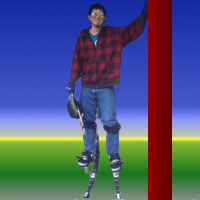ok so i want my randomly generated world, found here , to make a new file that saves the world to a text document that can also be interpreted and read to load a game. i would need the file to expand with the world where the world is never ending. i have made a test script that can make and read a file but i don't know where to go from there.






